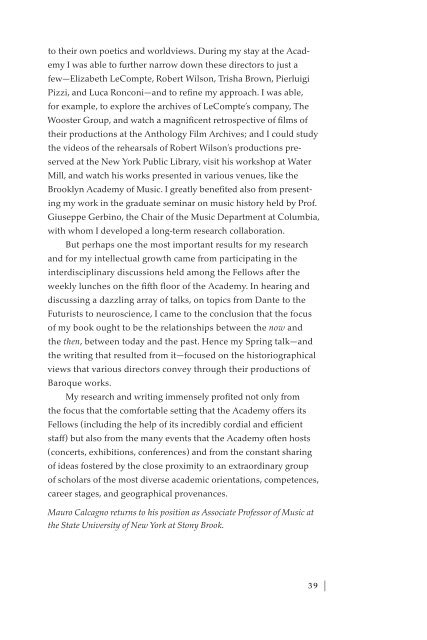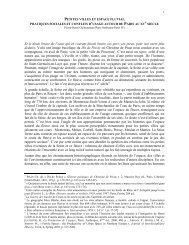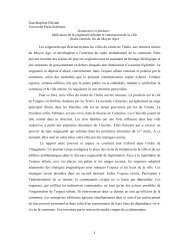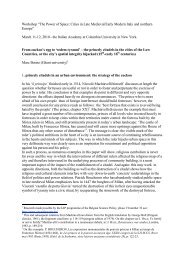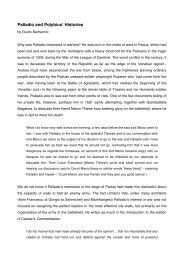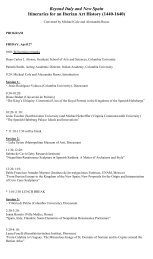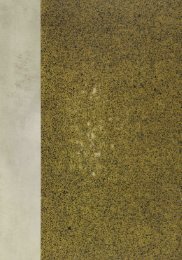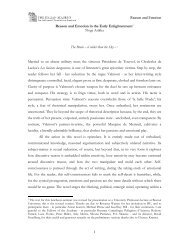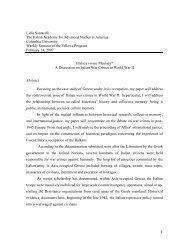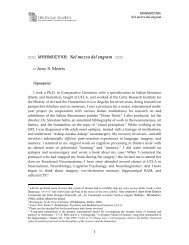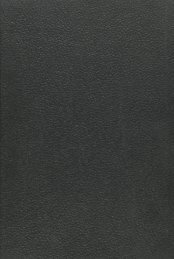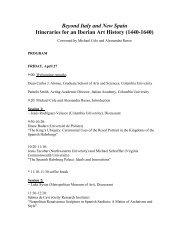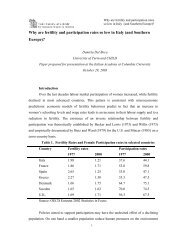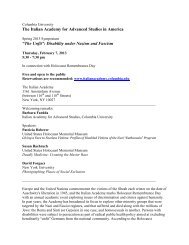2011-2012 - The Italian Academy - Columbia University
2011-2012 - The Italian Academy - Columbia University
2011-2012 - The Italian Academy - Columbia University
You also want an ePaper? Increase the reach of your titles
YUMPU automatically turns print PDFs into web optimized ePapers that Google loves.
to their own poetics and worldviews. During my stay at the <strong>Academy</strong><br />
I was able to further narrow down these directors to just a<br />
few—Elizabeth LeCompte, Robert Wilson, Trisha Brown, Pierluigi<br />
Pizzi, and Luca Ronconi—and to refine my approach. I was able,<br />
for example, to explore the archives of LeCompte’s company, <strong>The</strong><br />
Wooster Group, and watch a magnificent retrospective of films of<br />
their productions at the Anthology Film Archives; and I could study<br />
the videos of the rehearsals of Robert Wilson’s productions preserved<br />
at the New York Public Library, visit his workshop at Water<br />
Mill, and watch his works presented in various venues, like the<br />
Brooklyn <strong>Academy</strong> of Music. I greatly benefited also from presenting<br />
my work in the graduate seminar on music history held by Prof.<br />
Giuseppe Gerbino, the Chair of the Music Department at <strong>Columbia</strong>,<br />
with whom I developed a long-term research collaboration.<br />
But perhaps one the most important results for my research<br />
and for my intellectual growth came from participating in the<br />
interdisciplinary discussions held among the Fellows after the<br />
weekly lunches on the fifth floor of the <strong>Academy</strong>. In hearing and<br />
discussing a dazzling array of talks, on topics from Dante to the<br />
Futurists to neuroscience, I came to the conclusion that the focus<br />
of my book ought to be the relationships between the now and<br />
the then, between today and the past. Hence my Spring talk—and<br />
the writing that resulted from it—focused on the historiographical<br />
views that various directors convey through their productions of<br />
Baroque works.<br />
My research and writing immensely profited not only from<br />
the focus that the comfortable setting that the <strong>Academy</strong> offers its<br />
Fellows (including the help of its incredibly cordial and efficient<br />
staff) but also from the many events that the <strong>Academy</strong> often hosts<br />
(concerts, exhibitions, conferences) and from the constant sharing<br />
of ideas fostered by the close proximity to an extraordinary group<br />
of scholars of the most diverse academic orientations, competences,<br />
career stages, and geographical provenances.<br />
Mauro Calcagno returns to his position as Associate Professor of Music at<br />
the State <strong>University</strong> of New York at Stony Brook.<br />
39 |


